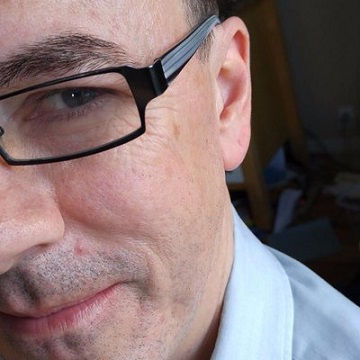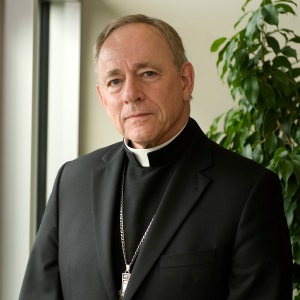
Paul Schratz is editor of The B.C. Catholic.
Paul Schratz’s recent column demonstrates the depth and breadth of trauma flowing from recent sexual abuse revelations in the Catholic Church. Though he is speaking primarily to fellow Catholics, his message applies to all of us.
Since the news came out about the Pennsylvania abuse crisis, I’ve struggled with how, or whether, to write about the whole tragedy, from its U.S. roots, to its local implications.
At first it was tempting to bow out because of fear. The experience of writing something that provokes outrage is not new to me, and I’ve no desire to go through it again.
But if there’s an attitude I know is wrong, it’s a fear-based one. Jesus repeatedly counselled his followers to not be afraid, and Scripture tells us hundreds of time not to fear.
Then I told myself the Pennsylvania situation wasn’t relevant. Why write about something that’s taking place thousands of miles away?
Except the Church in Vancouver is affected by what’s happening there. Catholics in the pews are aware of the situation and are experiencing it in various ways, from seething on social media to reaching out to the Archbishop, their priests and Catholics they know, and asking how to deal with it.
It’s also tempting to ignore Pennsylvania through a combination of pride and ignorance. The Archdiocese of Vancouver has had relatively few abuse cases over the past century. The archdiocese has strong policies in place now to prevent misconduct or abuse. What can someone in Vancouver possibly offer to the Pennsylvania situation except trite statements?
Except Pennsylvania had a grand jury investigation and we didn’t. There is always the possibility of someone coming forward to report something the archdiocese was unaware of.
The abuse crisis in Pennsylvania needs to be addressed in Vancouver. People are talking about it – the faithful, the media, people who have been hurt by the Church. They’re asking questions, and even if all the facts and answers aren’t yet known, they deserve a response. Here’s mine:
I don’t know what to say. Like you, I’m overwhelmed. Many of the people I work with are struggling. Some of us are fearful of doing or saying the wrong thing that, in helping some people, might hurt others.
All the things the people in the pews are experiencing right now, people who work for the Church are feeling too. Sorrow. Anger. Confusion. Defensiveness. Contrition. Heart brokenness.
I’m also aware that many people really don’t care what people who work for the Church are feeling, because this situation isn’t about them, it’s about those who were harmed and the people who harmed them.
Fair enough. But the reality is that people and Church entities are experiencing this crisis in different ways.
Different dioceses have different histories. Some religious orders may have handled things better than others. Some Catholic institutions are now coming to grips with matters they should have dealt with long ago.
And while many lay faithful are angry because some Church leaders hid behind walls of clericalism, others are upset because the present crisis is being focused on the Catholic Church, which has made great strides to implement policies and procedures to protect the vulnerable. Some question why the media don’t show the same zeal in exposing the large levels of abuse in professional organizations, or schools, or sports organizations. Others can see both positions but correctly note a priest or bishop must be held to a higher standard than a teacher or soccer coach.
Some Catholics, and non-Catholics, are simply angry and need someone, some place, to direct their anger.
That’s fair enough too. There’s a place for righteous anger. Jesus, who overturned tables in the temple, disparaged hypocrites, and insulted Herod would be right alongside those who are fuming right now, some even questioning their faith. Jesus is with them, as well as with the broken-hearted, the victims, those of us who are perplexed, and even with the perpetrators.
He’s also with those who don’t feel like God the Father is close by. Mother Teresa felt that way a lot, and Jesus himself experienced it the night before he died.
As many of us struggle with these confusing and sometimes conflicting emotions, we can trust that Jesus is experiencing them with us. Which is why the one emotion that has no place in our lives is fear.
This comment first appeared in The B.C. Catholic August 24 and is re-posted by permission. Paul Schratz is editor of The B.C. Catholic.

Archbishop Michael Miller
Archbishop Michael Miller issued a strongly worded statement August 17 on the subject “to the faithful of the Archdiocese of Vancouver”:
Over the past few weeks, a number of very serious accounts of sexual abuse in the Catholic Church have become public.
Like you, I am devastated by these accounts of profound evil.
What the victims of sexual abuse have endured has shaken me and broken my heart. I grieve for what they have suffered at the hands of their abusers and by those who betrayed their spiritual fatherhood by failing to protect those entrusted to their pastoral care.
In addition to being sexually abused, many victims were treated very poorly by authorities in the Church. The failure of Church leaders to prevent the abuse, covering it up by moving abusers around, their lack of care and concern for victims: these were grave failures and terribly wrong. We are all rightfully outraged and discouraged by these actions.
As a bishop, I am especially upset with those bishops and priests who failed to protect the most vulnerable among us. They did not live up to their calling as shepherds and, even more, as spiritual fathers. What father would come to know that his child had been abused and do nothing about it? What father would cover up the abuse and tell his child to “get over it” in order to protect the family’s “reputation”? Would that they had acted like Jesus, who showed his anger towards those who defiled the temple!
If you are aware of any situation of abuse happening now, please immediately contact law enforcement authorities. If the abuse involves a member of the clergy or any person engaged in ministry in our Archdiocese, please also make us aware. You may find our webpage on reporting abuse at: https://rcav.org/safe-environment-reporting/ If you know of any sexual abuse that occurred in the past, but have not reported it before, consider doing so now.
For a number of years now, the Archdiocese of Vancouver has had a robust abuse prevention policy in place. We report allegations of sexual abuse to law enforcement. We offer to pay for counselling for victims. We are looking at ways to offer other support as needed.
I call on the faithful of the Archdiocese of Vancouver to join me in doing penance in reparation for the grave sins committed within our Church against our brothers and sisters. In order to heal as a community of faith, we must first acknowledge our brokenness before the Lord.
Within the next few weeks, I will issue a pastoral letter outlining our plans, including prayer, fasting and services of reparation in all our parishes at a date to be determined. The pain inflicted on so many victims affects us all and compels each of us to offer our prayers for them and to do penance for the sins committed against them.
Most Reverend J. Michael Miller, CSB
Archbishop of Vancouver
17 August 2018
